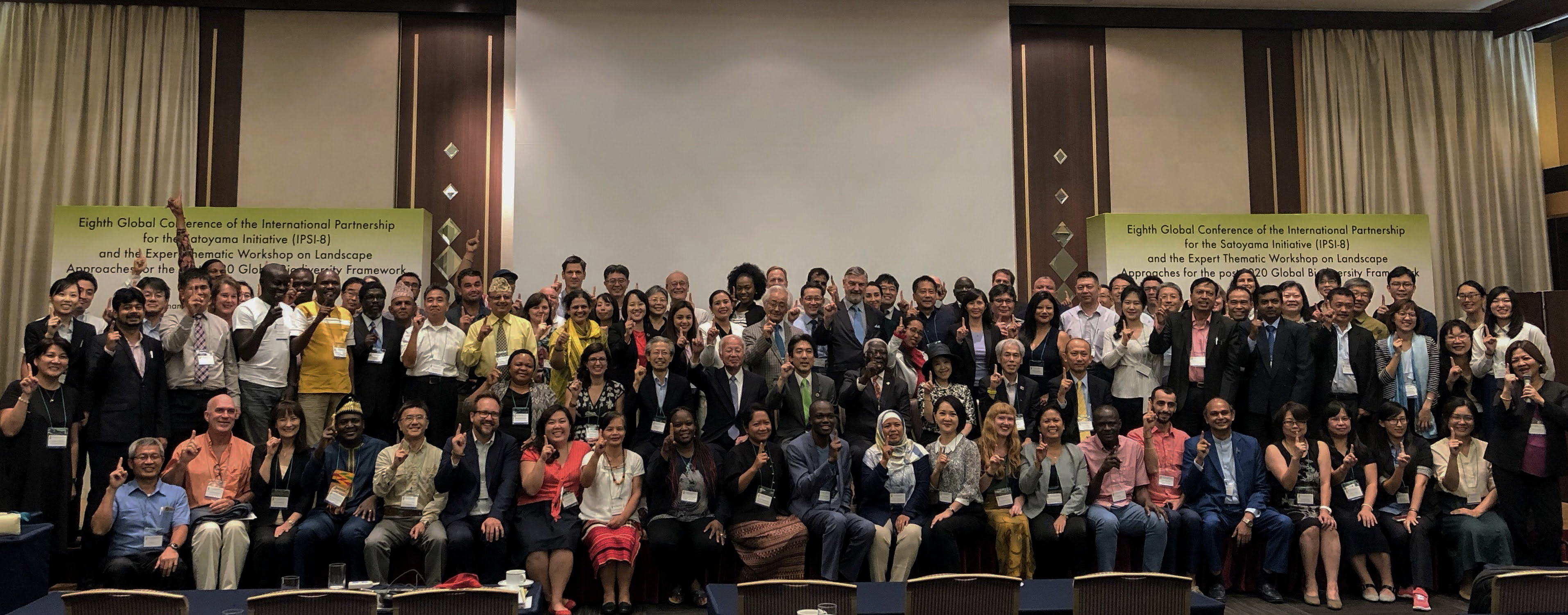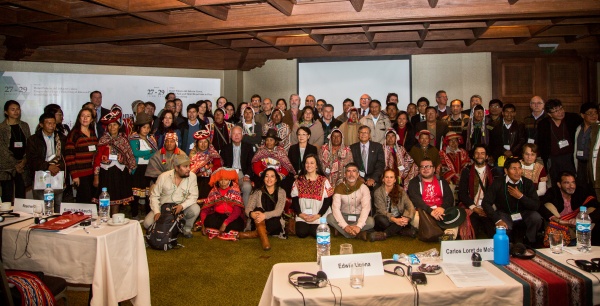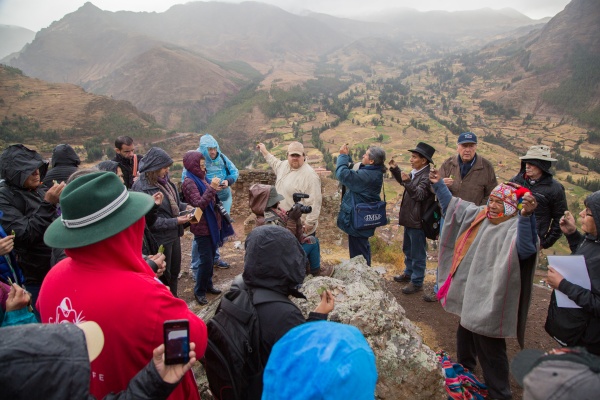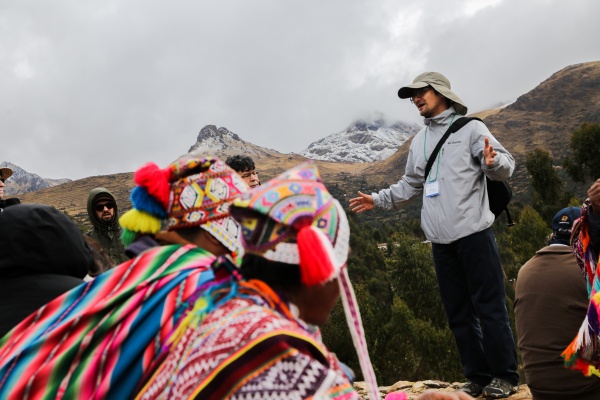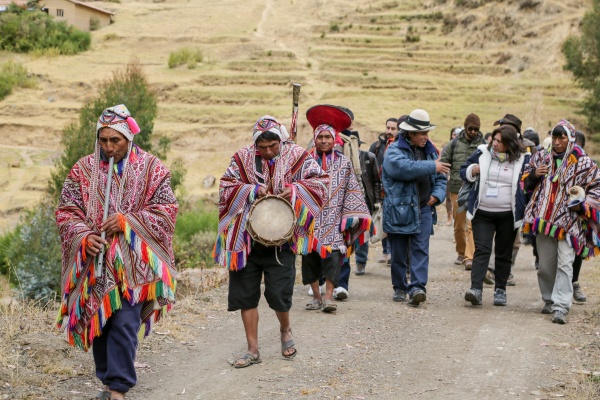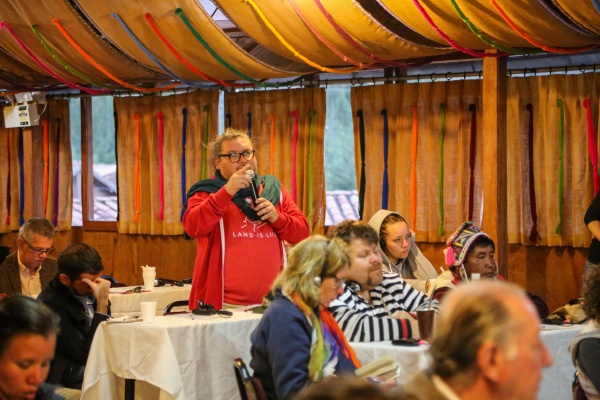Report
The official report for the Satoyama Initiative Regional Workshop in Peru has been completed and is available for download here: 201606 Peru RW Report
Overview
The Satoyama Initiative Regional Workshop in Peru 2016 was held from 27 to 29 June in Cusco and Pisac, Peru. This was the first Satoyama Initiative Regional Workshop to be held in the Latin America and the Caribbean region, following on previous Regional Workshops in Asia (Kathmandu, Nepal, 2013), Europe (Florence, Italy, 2014) and Africa (Accra, Ghana, 2015).
Around 60 participants from 16 countries in the Latin America and Caribbean region took part in the whole workshop, including opening and closing plenaries and a day and a half of field sessions held in the Potato Park near Pisac. Many others from the local community and those related to staff, speakers etc. also joined for some part of the events. The workshop was co-organized by the IPSI Secretariat at the United Nations University Institute for the Advanced Study of Sustainability (UNU-IAS), Asociación ANDES, and the Ministry of Environment, Peru (MINAM).
Events
Opening Plenary
The workshop opened with an opening plenary session in the morning and afternoon of Monday, 27 June. The session opened with a brief welcome message from Mr. William Dunbar of the IPSI Secretariat, followed by an opening address from Mr. Edwin Licona, Governor of the Cusco Region. This was followed by welcoming addresses by Mr. Wilber Vegas, Governor of the Apurimac Region and Mr. Alejandro Argumendo, Director of Asociación ANDES.
The Keynote Address was then given by Prof. Kazuhiko Takeuchi, Senior Vice-Rector of the United Nations University.
Following these introductory presentations and a short coffee break, a High-Level Roundtable was held, moderated by Mr. Carlos Loret de Mola, Advisor at MINAM. The Roundtable panelists were:
- Mr. Victor Nina, Representative, Ministry of Agriculture, Peru
- Mr. Marcel Velasquez,
Advisor Ministry of Culture, Peru
- Mr. Edwin Licona,
Governor of Cusco
- Mr. Wilber Venegas,
Governor of Apurímac
- Mr. Francisco Medina, Sustainable Land Management Coordinator, Apurímac Region
After lunch, the workshop continued with explanations of the workshop and a panel discussion. First, Mr. Dunbar gave an introduction to the Satoyama Initiative, IPSI and the Regional Workshop. This was followed by four panel presentations as follows:
- Dr. Josephina Takahashi, Peruvian Association of Bamboo, Peru: “Bamboo forest for sustainable development in Peru”
- Ms. Maria Vera, The Foundation for Research and Social Development, FIDES, Ecuador: “Socio-ecological production landscapes and seascapes. 2 Case Studies. Satoyama: Dry Forest – Satoumi: Mangrove Ecosystem”
- Mr. Juan René Guzman, United Nations Development Programme, The Community Development and Knowledge Management for the Satoyama Initiative, COMDEKS, El Salvador: “Socio-ecological production landscapes and seascapes outcomes from the El Salvador COMDEKS strategy”
- Ms. Yanisbell Rodriguez, Institute of Fundamental Researches on Tropical Agriculture, INIFAT, Cuba: “Resilience in socio-ecological production landscapes in two Man and Biosphere reserves in Cuba”
The four presenters then engaged in a panel discussion, moderated by Mr. John Leigh (Representative of Asociación Nacional para la Conservación de la Naturaleza, ANCON, Panama) and Mr. Carlos Alberto Amat y Leon Chavez (Advisor at MINAM). Finally, Ms. Helene Botreau from Asociación ANDES and Mr. Ricardo Paco Chipa from the Potato Park gave a detailed explanation of the field sessions that would be held the following two days.
Field Sessions
Participants took to the field for the morning and afternoon of 28 June and the morning of 29 June, visiting a number of sites in and around the Potato Park where they had an opportunity to see presentations about the Potato Park and its functioning, as well as presentations from other workshop participants on their activities.
The field sessions began with a ceremony held at the Pisac Archaeological Park, high above the town of Pisac, where participants joined the members of the communities of the Potato Park in a ceremony to ask the sacred mountains’ spirits for their favor for a successful workshop.
Participants then divided into three groups to visit different sites including the only dammed lake in the Potato Park, the community-run seed bank, and the seed multiplication facility.
Lunches during the field sessions were provided at the Pappamanka Restaurant in the Potato Park, where participants were able to sample a variety of local foods prepared by the Park’s culinary group.
Closing Plenary
In the afternoon of 29 June, participants reconvened at the Hotel Royal Inka Pisac for a closing plenary session, where major topics of discussion from each group were presented and lessons of the workshop synthesized to point the way forward for the Satoyama Initiative and participants working in SEPLS in the region.
In addition to presentations from each group, some additional presentations were given, including a video presentation from Asociación ANDES on the Potato Park communities depositing their potato seeds in the Svalbard Global Seed Vault, a video presentation from the COMDEKS Project in Brazil, and a book launch of a new book on biocultural heritage in indigenous communities in Mexico by Dr. Eckart Boege of the National Institute of Anthropology and History in Mexico.
Reception and Cultural Event
A reception was held at the Hotel Royal Inka Pisac in the evening of 28 June for participants to enjoy talking in a more informal setting. A music and dance performance was also given, featuring local group Wanaytaqui.
Documents
Workshop Programme: Concept Note and Programme – Peru Regional Workshop_rev0627
Presentation Files and Related Materials
Opening Plenary
Keynote Speech: Prof. Kazuhiko Takeuchi, Senior Vice-Rector, United Nations University, “Living in Harmony with Nature: The Satoyama Initiative” (English) (Spanish)



